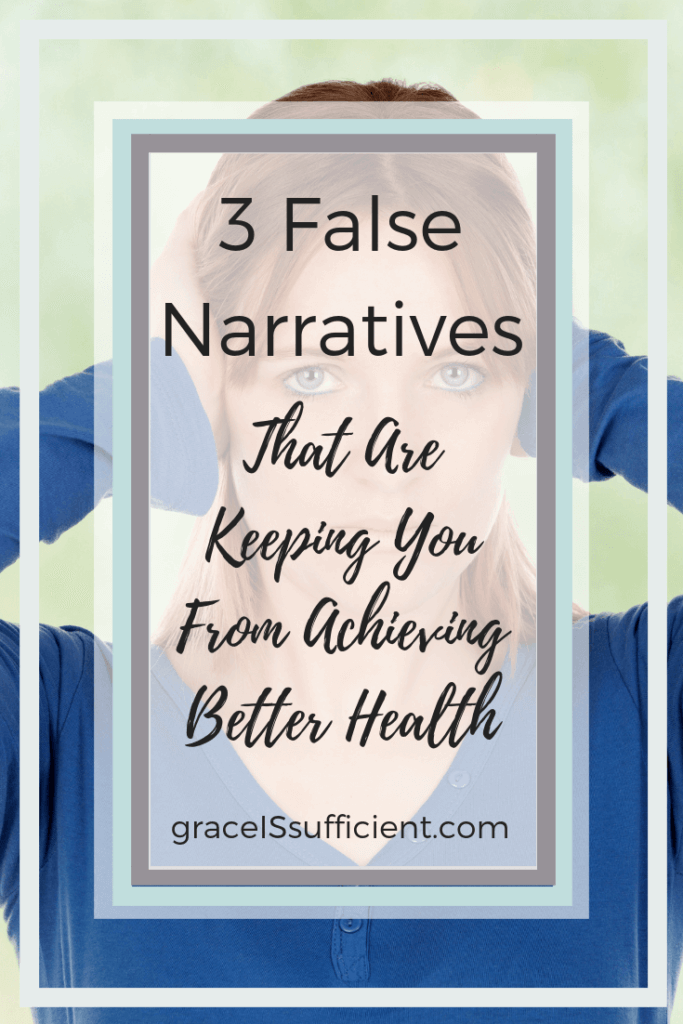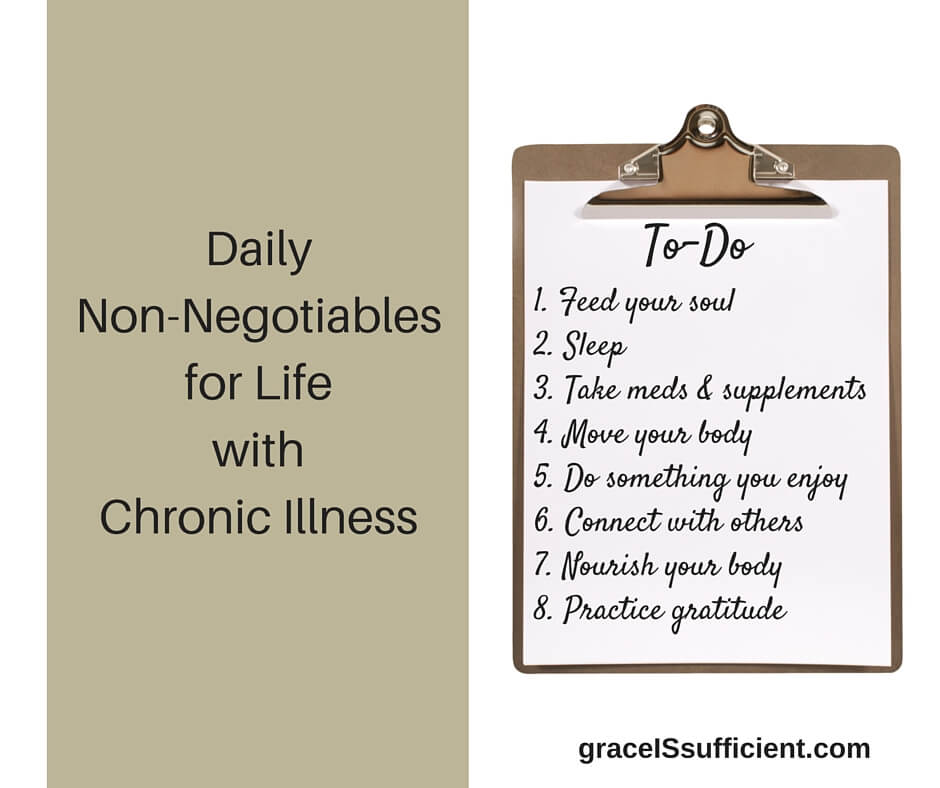Houston we have a problem. The problem is we start one new healthy habit or goal just to quit a week later when we don’t see immediate benefits.
We really want to see improvement in our health but how can we be sure the next time isn’t the same as last time? What can we do to set ourselves up for success?
We have to start by eliminating all the negative self-talk we’ve been feeding ourselves for so long.
I’ve uncovered three false narratives we need to overcome in order to guarantee our success. Here they are…
3 False narratives that are keeping you from achieving better health:
Experience makes me wiser.
Our experience with our chronic illness doesn’t guarantee wisdom. For some of us, we keep making the same choices that seem to help short-term but don’t lead to long-term health benefits. For example, for years I self-medicated with caffeine and sugar in an attempt to tackle my extreme fatigue. It offered short-term benefits like getting me through the day at work but the long-term results were anything but beneficial to my body.
So how can we develop wisdom through all this experience? Tracking various things regarding your health will lead to better outcomes. Here are a few examples: logging what you eat and noting how it makes you feel, tracking when you take your meds and marking down symptoms that occur as a result of that dosage, or jotting down progress in exercise. This information will give you the data you need. Studying this data will turn into wisdom as you begin to act according to what you’ve learned and you take steps toward long-term better health instead of just short-term, temporary results.
Learning all I can will lead to better health.
When you know better it doesn’t mean you’ll automatically do better. Knowledge doesn’t strengthen willpower or self-control.
We can watch all the videos, read all the books, subscribe to all the blogs – but if we don’t do something with the knowledge we’ve learned we’re no better off than we would be if we had spent all that time watching cartoons instead of educational health programs.
You see, as soon as we realize there is a change we have to make to improve our health, we start to measure the cost. What do I mean by this? We start a bit of brain sabotage- “what type of effort on my part is needed to carry out the change and how much added discomfort will I go through.”
This takes us back to my example of sugar and caffeine. To give it up means I’ll suffer caffeine withdrawal headaches and some energy crisis while my body adjusts to healthier foods that don’t contain those two stimulants. It also means I’ll have to spend time researching and preparing healthier options that I’ll have available while I detox.
In order to succeed you have to determine that the long-term benefits far out-way the short-term costs. Once you do that you’ll be able to add some action to that knowledge you’ve been soaking in!
Time is against me. I’ve been unhealthy for way too long and I can’t possibly improve things now.
If you’re anything like me you may have made a few comments such as: “I wish I had started doing that in my 20’s.” No matter how old we are today we need to remember that today’s actions affect tomorrow’s health. If you eat three tubs of ice cream and a box of donuts today you’re not going to feel so good and that’s going to roll over into a sugar coma tomorrow. On the other hand, if you drink a green juice smoothie and take a 15-minute walk your body is two steps closer to a healthier you.
Life has enough unavoidable problems and our illnesses dictate so much of our lives – so why make bad choices that will set us up for more problems that were totally avoidable.
Take some time and set a few goals for yourself based on what you learned while you were tracking things as I mentioned in #1. If you’ve noticed that you’re able to walk for 15 minutes you may want to set a goal to increase that amount of time by 1 minute each week. In a few months, you’ll be walking a half-hour a day. No matter how old you are when you start – you can make positive changes that affect your future health!
And hey, if it would brighten your day, find ways to reward your effort. Gold stars aren’t just effective for kindergartners. Pick a healthy way to reward yourself as you meet those goals.
Do you have a problem with negative self-talk?





